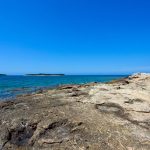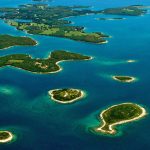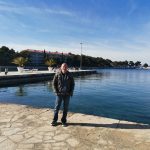As yet, there is still no consensus as to whether beautiful Brijuni will be a luxurious lifestyle destination, or some sort of mix between a national park and a resort.
As Marija Brnic/Poslovni Dnevnik writes on the 8th of August, 2018, renting the Galija islet and villa Kaštel on the island of Vanga in the Brijuni archipelago without any development plan, as was stated on Wednesday by the State Property company, is a move taken by the state which has been unable to solve the issue of the tourist valorisation of one of the strongest potentials in Croatian tourism, National Park Brijuni, for years.
The local administration in Pula, who rather uncomfortably learned the news from the newspaper about the renting of an island within its administrative area, were not best pleased. Only the attitude of the Ministry of Tourism itself has remained unknown, and there has still been no answer. As Jutarnji list reported, long-term concessions for Galija and vila Kaštel appear to be planned.
The lease model would be similar to that taken up in the case of the island of Smokvica, which was under the control of the disgraced Todorić dynasty for years, until it was recently leased to a Hungarian fund. Poslovni‘s interlocutors believe that Smokvica and Brijuni are incomparable locations because Galija and Vanga are on a group of islands where the development of luxury tourism is, despite numerous issues, still on the cards. Consultant Siniša Topalović from Horwath HTL has warned that Brijuni is indeed a very complicated case, where many existing stakeholders often have diametrically opposed interests.
“There’s no consensus about the future of this island, on whether it will be a lifestyle destination that will be adapted to 21st century glamour or a mix between a national park and a private resort with private long-term leases,” said Topalović, before adding that the issue of Brijuni shouldn’t be the subject of partial and technical decisions.
Otherwise, Horwath itself developed the concept of using Veliki Brijuni for the government led by former prime minister Zoran Milanović (SDP), along with the plan of finding an investor and a global hotel brand for the realisation of a luxurious tourist project, but nothing arose from that plan, nor has it ever.
“Not one government has had enough courage to question the realisation of commercial projects in NP Brijuni in the direction of luxury and sustainability, which would have a developmental role for both the state and for the local community. In the rest of the world, this is normally done in a transparent way and with control. The only positive thing is that investment in infrastructure and facilities is planned, but it’s ludicrous to lease an island that could play an important role in the commercial use of the National Park,” stated Veljko Ostojić, the director of the tourist association and the former head of the Brijuni riviera company.
Consultant Sanja Čižmar doesn’t think that renting these two islands is particularly damaging, however absurd in itself it may be. “This move actually maintains the status quo, and serves only for short-term budgeting,” said Čižmar.
They all point out that, although the National Park is formally under the jurisdiction of the state, the local authorities should be consulted. “In the news we’ve read here today in the newspapers, nobody even informed us about the plans for islands that administratively belong to the City of Pula. This isn’t a good path for Brijuni, this issue needs to be resolved in a complete, comprehensive, and long-term developmental way, so that the state and the local community have some use of it,” Pula Mayor Boris Miletić told Poslovni Dnevnik.
Click here for the original article by Marija Brnic for Poslovni Dnevnik










